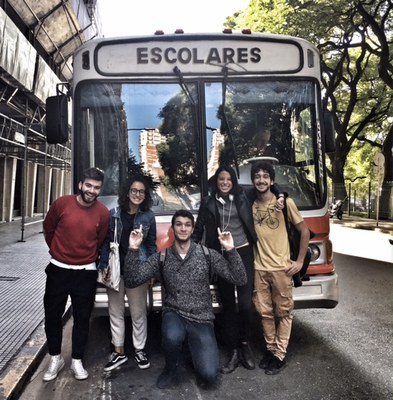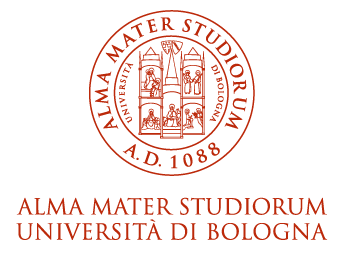Would you like to start your academic career abroad? Check the Buenos Aires track of Business and Economics
INTERVIEWS FOR THE FIRST INTAKE WILL TAKE PLACE ON OCTOBER 1, 2025. CANDIDATES WILL RECEVE THE EXACT DATE AND TIME VIA EMAIL.

GENERAL DESCRIPTION - Interdipartimental programme
CLABE Buenos Aires (CLABE B.A.) is an international bachelor degree programme in Business and Economics that follows the pattern of the "ordinary" CLABE degree. They both present the same scheme of subjects. Despite that, they are completely standing-alone between each other and the official calls of admission are separated and different.
It means that you can be a Clabe Bologna track student or alternatively you can be a Clabe BA student.
The main difference between is that the Clabe BA students are going to attend their first year classes in the UniBo campus in Buenos Aires, while the Clabe students in the campus of Bologna. The first year in Buenos Aires will be an intensive year: it will start in January (three months later with respect to the regular courses in Italy) but it will still include all the subjects of the entire first year. At the end of the Buenos Aires period, beginning of September, students will move to Italy and will be able to go on with their second year of Bachelor's Degree in Business and Economics (held in the Bologna center, in English language). The third year of Clabe BA can be followed in Bologna or Buenos Aires (or in other universities with the Erasmus or Overseas programs).
Even if the Clabe BA is an international bachelor's degree course, it follows the standard European system of university studies, based on ECTS Credits.
Why interdipartimental?
A similar programme will allow students to enroll in the School of Political Science and follow a first year in Buenos Aires and then proceed with the second and third year in Italy with the Bachelor's Degree in Political, Social and International Sciences (Corso di Laurea in Scienze Politiche, Sociali e Internazionali; held at the Bologna center; in Italian language) or the Bachelor's Degree in International and Diplomatic Sciences (Corso di Laurea in Scienze Internazionali e Diplomatiche; held at the Forlì center; in Italian language).
The courses of the first year are valid for all the three degree courses, so for a purpose of administative efficiency, we form one class including students of the three degree courses. From the second year onwards students will be in different classes (in Italy).
PROGRAMMES TRACKS
| 1° YEAR | 2° YEAR | OPTIONS FOR THE 3° YEAR | |
| Degree Programme | (place and languages of the courses) | (place and languages of the courses) | (place and languages of the courses) |
| Business and Economics | Buenos Aires (Spanish and English) |
Bologna (English) |
a) Buenos Aires (Spanish and English)* |
| b) Bologna (English)* | |||
| c) mobility eg. Europe/Overseas** |
** International Opportunities Unibo* students can decide to pursue their 3rd academic year in Unibo Bologna or to send their application for the study exchange program with the Unibo venue in Buenos Aires, for one or both semesters, according to the "Semesters@Buenos Aires Campus" project.
Please look at its "call for application" as a reference
Admission process: based on an interview, that includes motivation, mathematical and logical reasoning, general culture, and languages. The interview will be held in English. Spanish language will be an additional element to be considered in the admission process.
Admitted students who will possess a secondary school diploma by the end of July (this usually happens for students coming from countries of the boreal hemisphere) it will be possibile (optional) to follow one or two courses in Bologna, between September and December of the same year.
Students who, at the time of the admission process, do not already possess a secondary school diploma but will obtain it in December (this usually happens for students coming from countries of the austral hemisphere), will start the programme on the 1st of February of the following year.
Students coming from countries other than Argentina, should be in Buenos Aires earlier, to find the accommodation and to get familiar with the city; this is particularly important for students whose mother tongue is not Spanish, in order to pratice the language.
On January the 12th normal courses will start and will go on with lectures and exams until end of August; some second/third chances to take exams (for students who do not pass during the first round) can be scheduled until the beginning of September.
Classes of the second year (in Italy) start in September of the same year. Usually classes start on the third week of the month. Students are suggested to arrive in Bologna by the second week of September.
Carefully read the call to have further details
COSTS
The Universitity of Bologna has a new system of calculating the Academic fees: please read this page to check your position.
|
COURSES |
LANGUAGE |
CREDITS |
|
Macroeconomics BA |
Spanish |
9 |
|
Microeconomics BA |
Spanish |
9 |
|
Organizational Behaviour BA |
English |
9 |
|
Principles of Management BA |
English |
9 |
|
Statistics BA |
Spanish |
9 |
|
Mathematics |
Spanish |
12 |
|
Computational Tools BA |
|
3 |
Students of the Undergraduated bachelor's degree in Business and Economics BA can find more information about managing their study plan here.
First Year @Buenos Aires - English version
[ .pdf 667Kb ]
First Year @Buenos Aires - Italian version
[ .pdf 637Kb ]
[ .pdf 1958Kb ]
How can we help you: Notices about logistics and organisational aspects concerning your degree programme, general information on admissions, exams, course timetable, study plan and graduation.
Contact person's name for the office Angela Adamo
E-mail didatticasociale.clabe@unibo.it
Phone +39 051 2098142 Orario telefonico
Address Piazza Scaravilli, 2 - 40126 Bologna, Italy Orario apertura al pubblico
